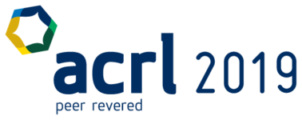Session Description:
In this workshop attendees will learn about the new Project Outcome for Academic Libraries surveys and resources. Project Outcome is a free toolkit that helps libraries measure four key learning outcomes knowledge, confidence, application, and awareness across seven library program and service areas. This new toolkit will provide academic libraries of any size the means to easily measure the learning outcomes of their programs and services and to use that data as the basis for improvements and advocacy.
